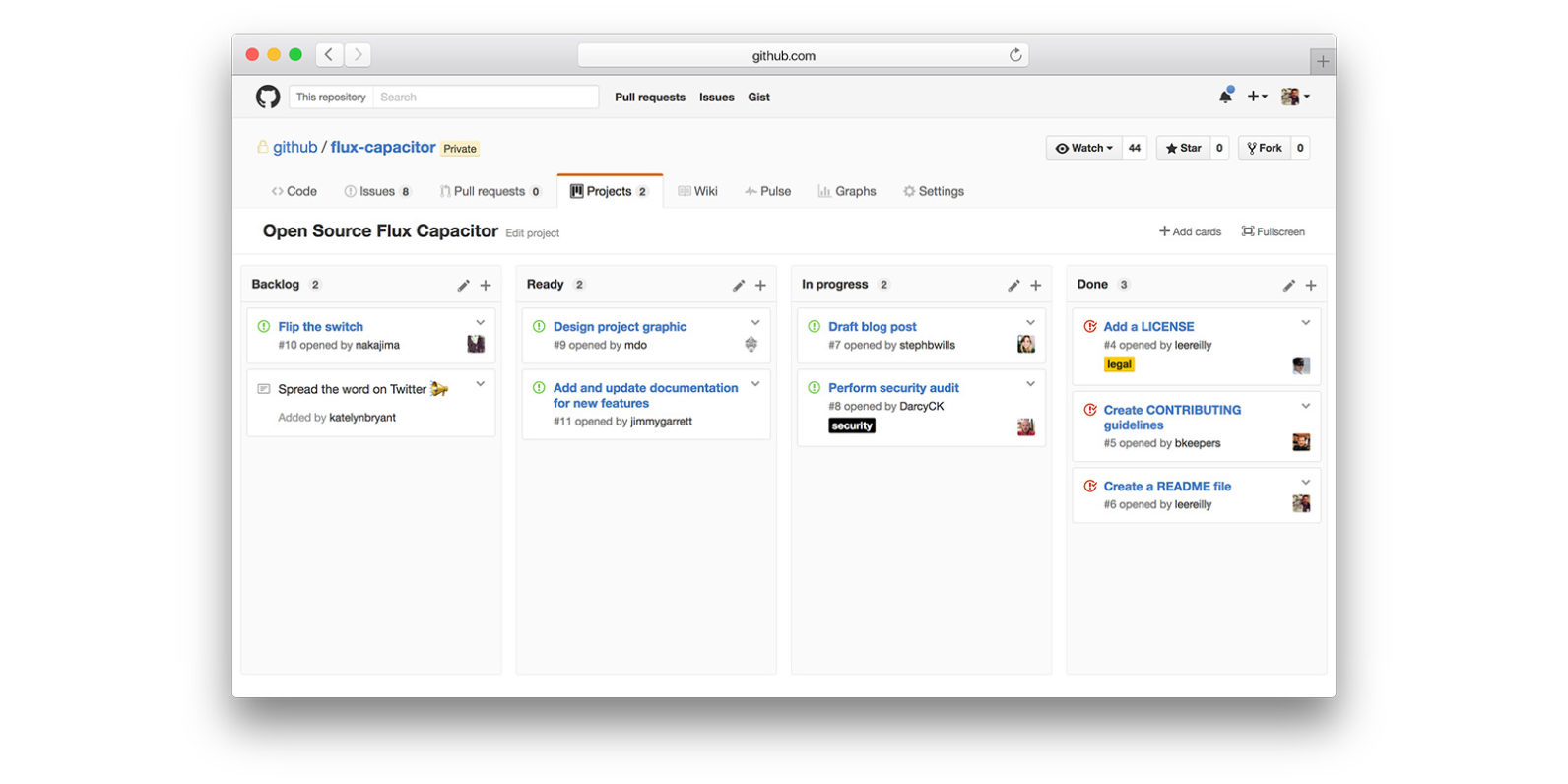Project vs Repository in GitHub
In GitHub, what is the conceptual difference between a project (that can be created inside a repository) and a repository?
I\'ve seen several similar questions (her
-
GitHub recently introduced a new feature called Projects. This provides a visual board that is typical of many Project Management tools:

A Repository as documented on GitHub:
A repository is the most basic element of GitHub. They're easiest to imagine as a project's folder. A repository contains all of the project files (including documentation), and stores each file's revision history. Repositories can have multiple collaborators and can be either public or private.
A Project as documented on GitHub:
Project boards on GitHub help you organize and prioritize your work. You can create project boards for specific feature work, comprehensive roadmaps, or even release checklists. With project boards, you have the flexibility to create customized workflows that suit your needs.
Part of the confusion is that the new feature, Projects, conflicts with the overloaded usage of the term project in the documentation above.
讨论(0) -
With respect to the git vocabulary, a Project is the folder in which the actual content(files) lives. Whereas Repository (repo) is the folder inside which git keeps the record of every change been made in the project folder. But in a general sense, these two can be considered to be the same. Project = Repository
讨论(0) -
GitHub Repositories are used to store all the files, folders and other resources which you care about.
Git Project : It is also one of the Resource in Git Repository and main use of it is to manage the projects with a visual board. If you create a project in Git Repository it create a visual board like a Kanban board to manage the project.
In this way, you can have multiple projects in a repository.
讨论(0) -
In general, on GitHub, 1 repository = 1 project. For example: https://github.com/spring-projects/spring-boot . But it isn't a hard rule.
1 repository = many projects. For example: https://github.com/donhuvy/java_examples
1 projects = many repositories. For example: https://github.com/zendframework/zendframework (1 project named Zend Framework 3 has 61 + 1 = 62 repositories, don't believe? let count Zend Frameworks' modules + main repository)
I totally agree with @Brandon Ibbotson's comment:
A GitHub repository is just a "directory" where folders and files can exist.
讨论(0) -
The conceptual difference in my understanding it that a project can contain many repo's and that are independent of each other, while simultaneously a repo may contain many projects. Repo's being just a storage place for code while a project being a collection of tasks for a certain feature.
Does that make sense? A large repo can have many projects being worked on by different people at the same time (lots of difference features being added to a monolith), a large project may have many small repos that are separate but part of the same project that interact with each other - microservices? Its a personal take on what you want to do. I think that repo (storage) vs project (tasks) is the main difference - if i am wrong please let me know / explain! Thanks.
讨论(0) -
This is my personal understanding about the topic.
For a project, we can do the version control by different repositories. And for a repository, it can manage a whole project or part of projects.
Regarding on your project (several prototype applications which are independent of each them). You can manage the project by one repository or by several repositories, the difference:
Manage by one repository. If one of the applications is changed, the whole project (all the applications) will be committed to a new version.
Manage by several repositories. If one application is changed, it will only affect the repository which manages the application. Version for other repositories was not changed.
讨论(0)
- 热议问题

 加载中...
加载中...